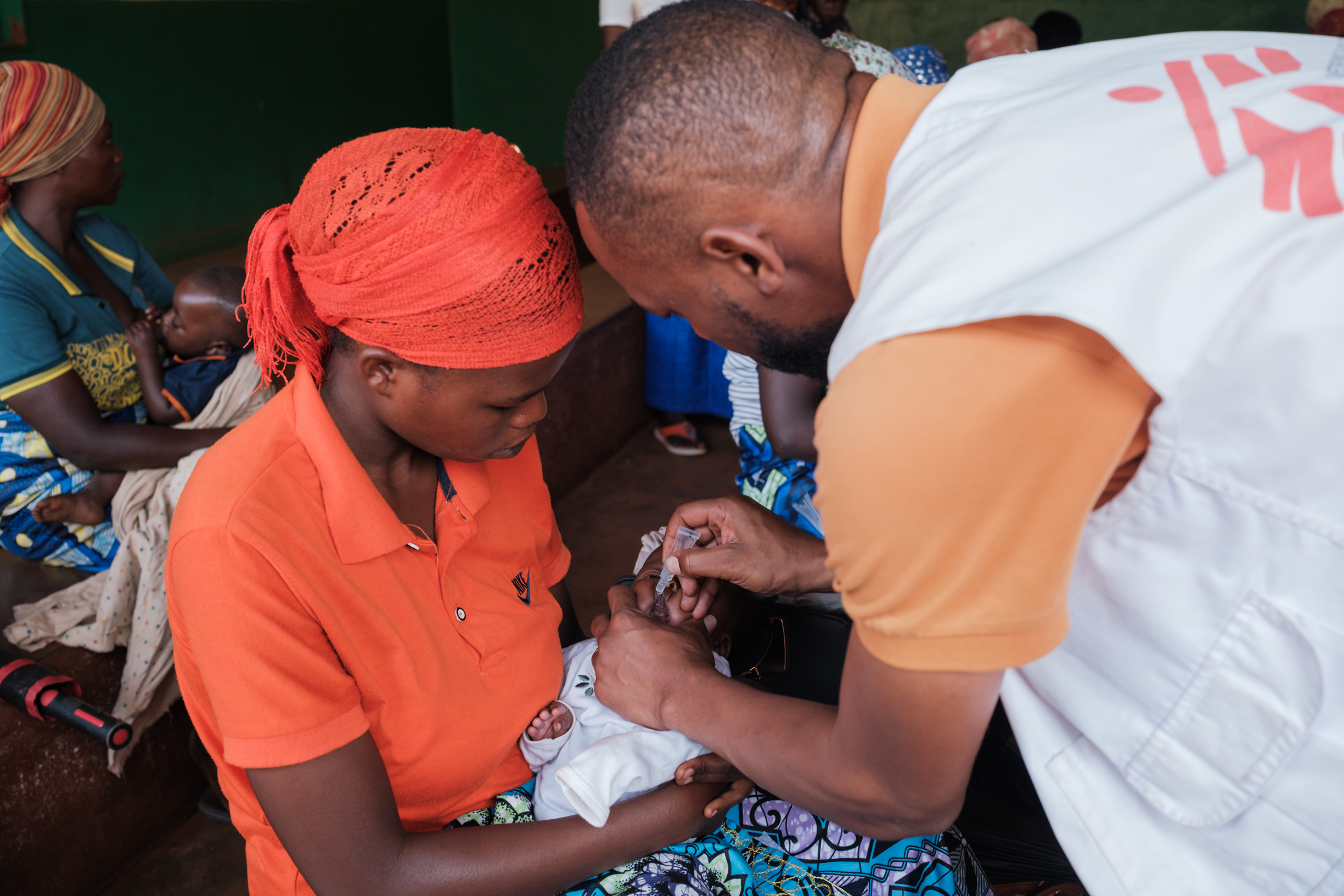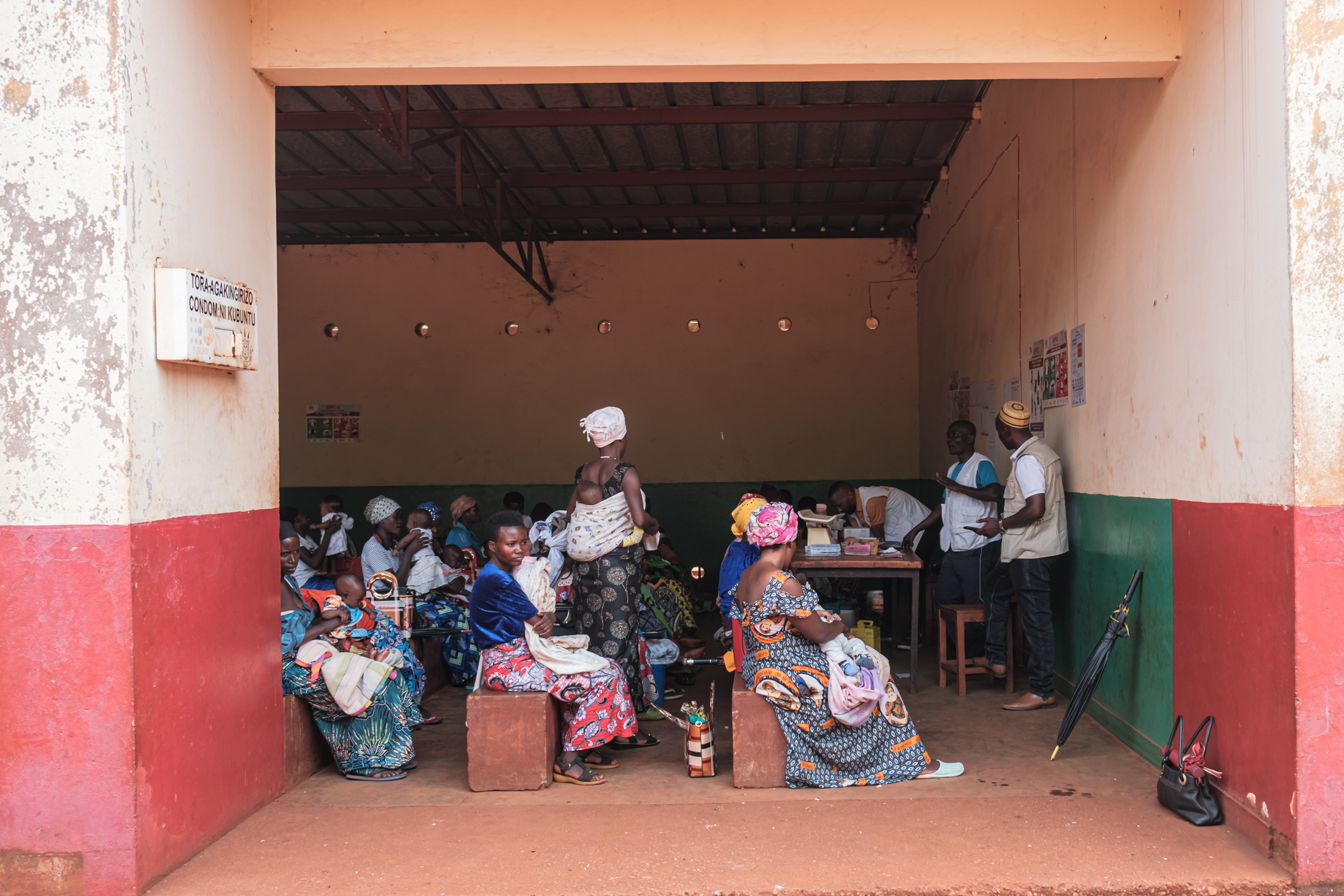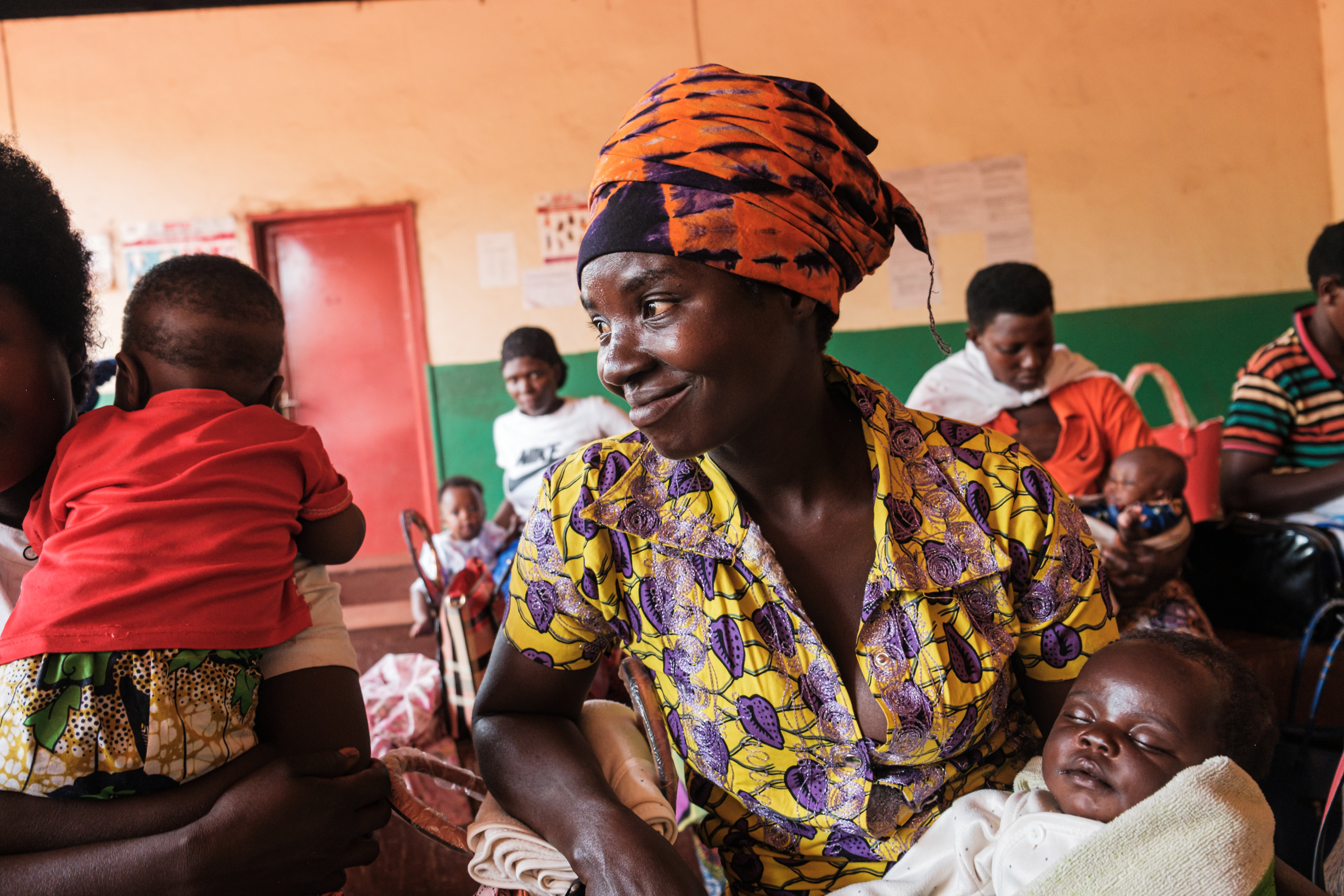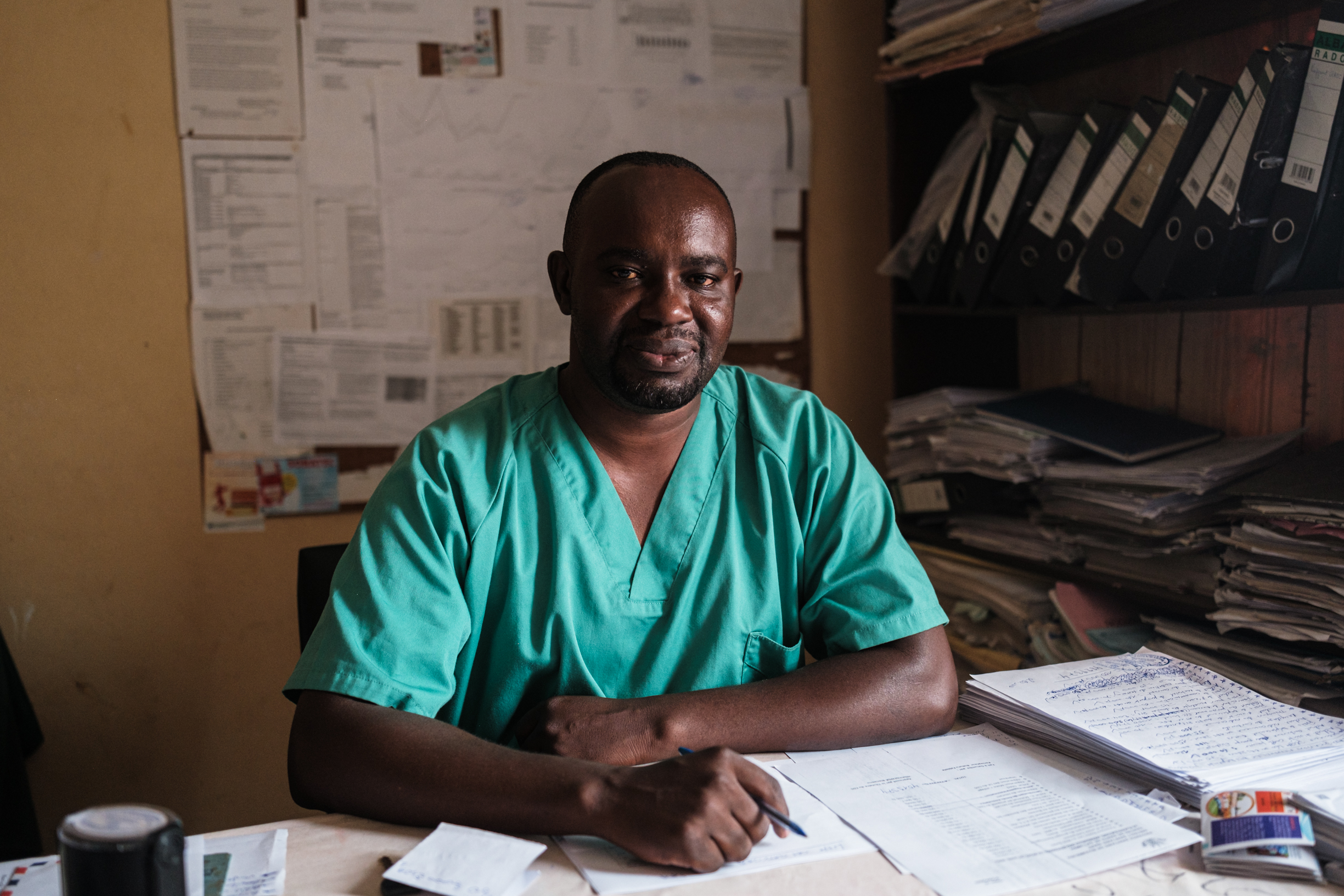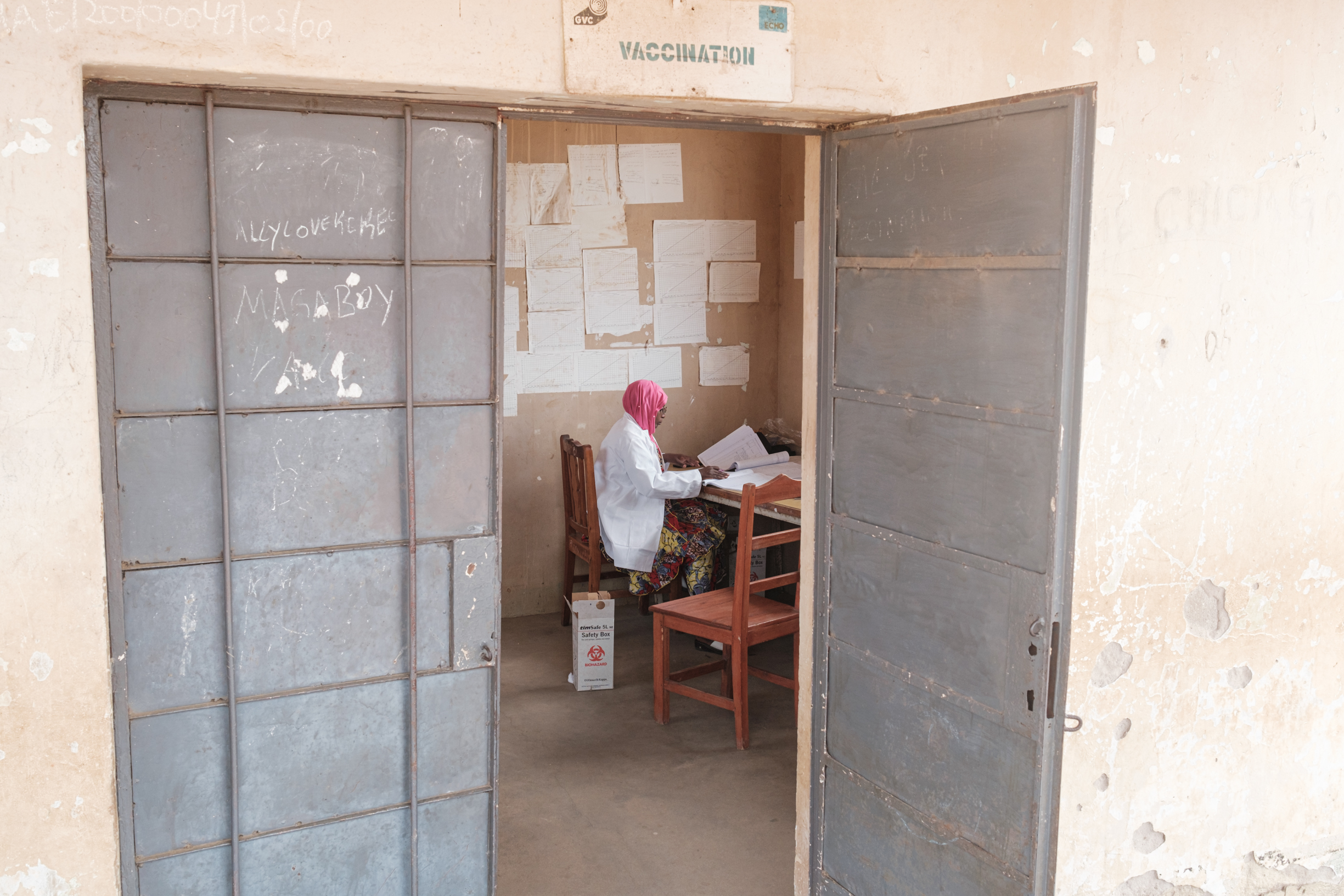It began like any other morning in Gaharawe village, a small community near Burundi’s western border. Four-year-old Kaneza Ndayisaba woke up after a peaceful night’s sleep. But when she tried to stand, her legs gave way beneath her.
Her mother, Belyse, known in the neighborhood as Mama Allan, helped lift Kaneza on her two feet. A moment later, she had fallen again, with one of her legs collapsing under her weight each time. One of her arms was paralyzed as well. Belyse was bewildered.
“She had slept well. The day before, she was alright, and then suddenly, she could not use her arm and leg. It happened very abruptly,” Belyse told Global Citizen.
Belyse’s first instinct was to take Kaneza to church, hoping that prayer might bring healing. But when the paralysis persisted, she spoke to the community health worker who advised her to go to the Gatuma health facility.
Following this advice, Belyse carried her daughter to the Gatumba Health Facility, where nurses examined the child and took a series of samples.
Lydia Nimbona, the laboratory technician on duty, remembers that day clearly. She collected Kaneza’s samples and arranged for them to be sent to Uganda for testing. In the meantime, rumors spread throughout the community that someone had cast a spell on the child, making her unable to move.
When the first test results came back, they showed no trace of the virus. But upon further testing in the coming weeks, it was confirmed that Kaneza contracted a case of type 2 poliovirus (cVDPV2), making it the country’s first case in 30 years. Poliovirus is a highly infectious viral disease, which spreads from person to person predominantly through fecal-oral transmission. Mostly impacting children under 5, polio can cause paralysis and has no cure, although it is preventable with safe and effective vaccines for children.
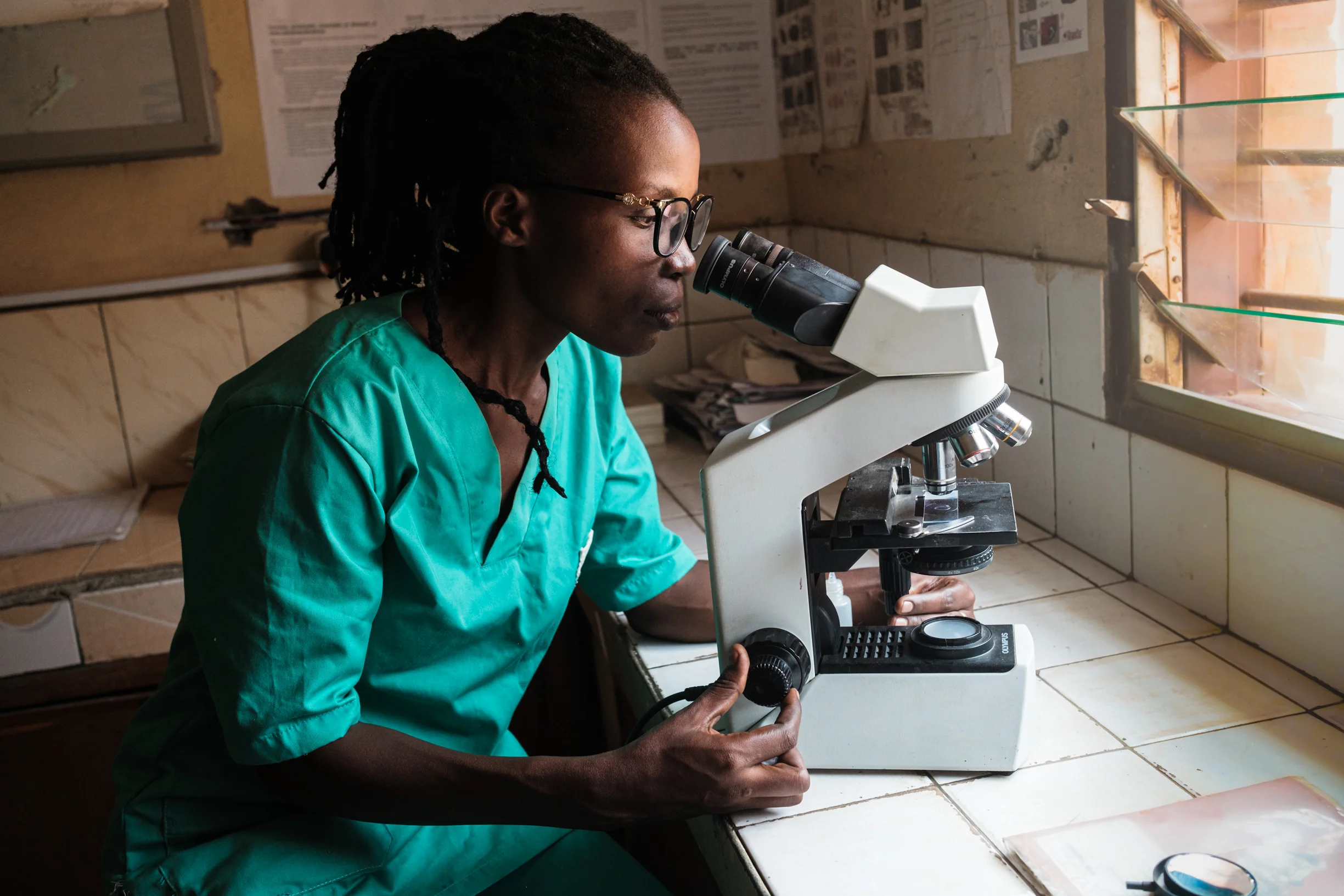 Lydia Nimbona, the laboratory technician on duty, remembers the day she collected Kaneza’s samples, which tested positive for poliovirus, making it the first such case in Burundi in more than 30 years.
Lydia Nimbona, the laboratory technician on duty, remembers the day she collected Kaneza’s samples, which tested positive for poliovirus, making it the first such case in Burundi in more than 30 years.
Nimbona recalls how hopeful Belyse had been throughout the ordeal.
“Anytime we called her, she would come quickly to the facility. She was hopeful there would be medicine, and was disappointed in the end because she thought there would be a cure,” Nimbona said. “She didn’t know there were diseases that could make children suffer like that.”
Belyse, who was previously unaware of the poliovirus, began to learn about it at the health facility. “They told me polio is a very serious disease and the child can even die,” she said, noting that her daughter did not receive any doses of the polio vaccine.
A Nation Responds: Rolling Out Vaccination Campaigns
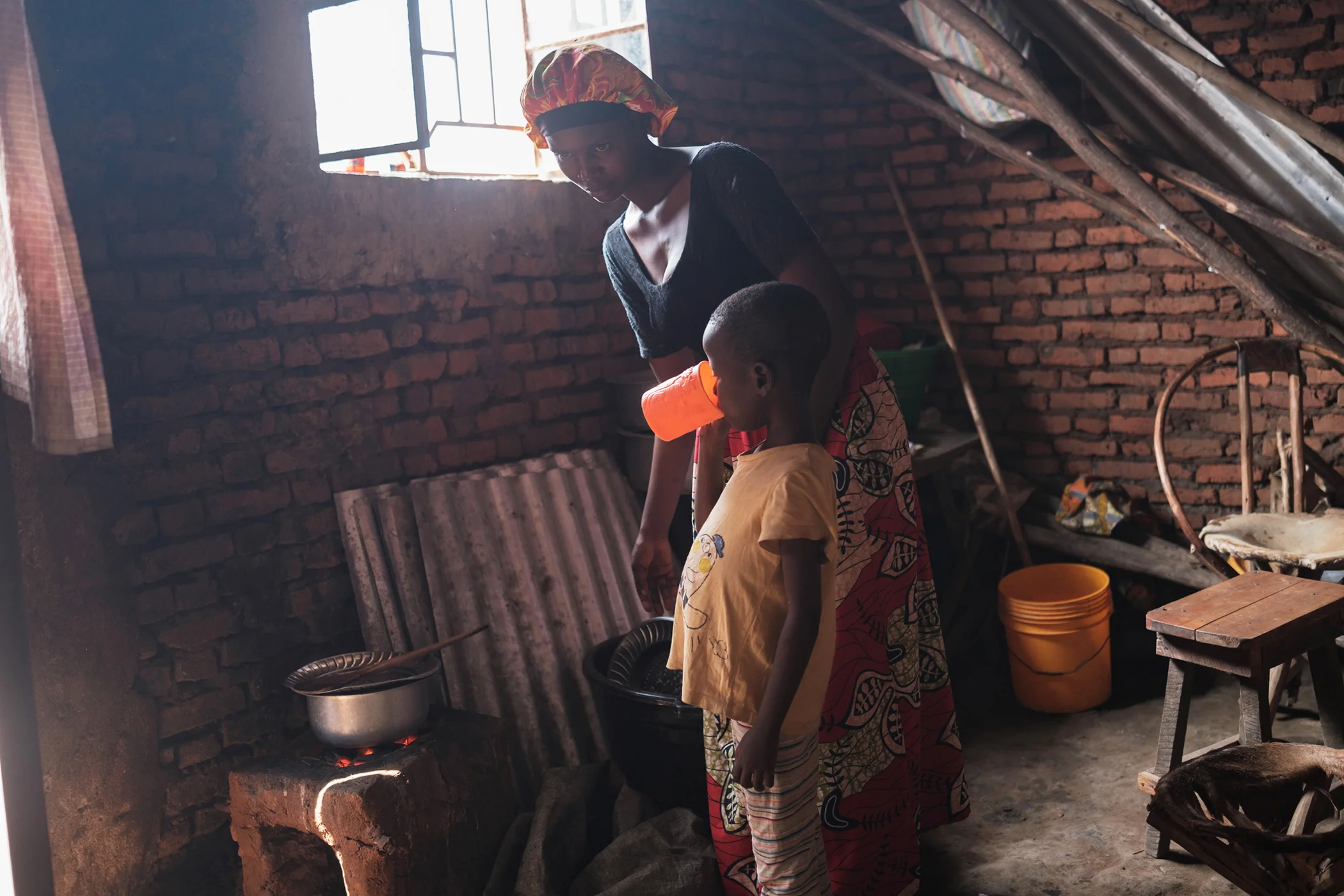 Kaneza Ndayisaba and her mother, Belyse, in their home in Gaharawe village, near Burundi’s western border in July 2025. Kaneza experienced partial paralysis in her legs and one arm after contracting poliovirus due to missing routine immunizations.
Kaneza Ndayisaba and her mother, Belyse, in their home in Gaharawe village, near Burundi’s western border in July 2025. Kaneza experienced partial paralysis in her legs and one arm after contracting poliovirus due to missing routine immunizations.
After Kaneza’s sample tested positive for polio, health workers went into the community to collect additional samples from children who interacted with Kaneza. The samples all tested negative — a relief for health workers and community alike. Now, health workers had to focus on containing the virus.
“Burundi’s Expanded Programme on Immunization (EPI) told us we had to immunize children in the whole country because it was serious,” said Bienvenu Ndayisenga, the chief of the Gatuma health facility.
In additional testing, two other children were confirmed to have been infected. In May 2023, Burundi’s Ministry of Health declared a polio epidemic.
It took months of preparation to roll out a country-wide campaign — both internationally, with UNICEF and GAVI needing to raise funds for the campaign, and within Burundi, as government, health workers at all levels, and authorities collaborated on how to effectively implement the vaccination campaigns.
“We went village to village, house to house,” said Ndayisenga, recalling the meticulous planning needed and the challenges encountered.
While community health workers typically ride motorbikes to more remote areas, securing fuel was difficult due to ongoing fuel shortages in the country. Instead, community health workers traveled by foot, walking up to 8 kilometres each way with the vaccine to reach some households. On average, a community health worker would visit between 30 to 40 households per day during the door-to-door campaign.
As is typical in all vaccination campaigns, health workers encountered ‘refusal households’, which are those who declined to vaccinate their children. In Burundi, these households were particularly common among the Abashoke, a religious group who decline vaccinations due to spiritual beliefs.
“We worked with [communities] on behavior change because we know there are people who refuse to vaccinate their children. They are not many, but they exist,” said Isaac Matere, Immunization Specialist, UNICEF.
The campaign, implemented by UNICEF, WHO, EPI, and the Ministry of Health, had a target of reaching more than 2,730,000 children across the country, with three doses of the polio vaccine through three campaigns.
All campaigns exceeded their target, reaching 112 per cent, 123 per cent, and 125 per cent of their goal, respectively, according to UNICEF, indicating that there were underestimates in the number of children. Random sampling during the three campaigns indicated that between 71 per cent to 90 per cent of children under age seven in Burundi received the vaccination, with the average changing per campaign.
Toward a World Without Polio
Outside Belyse’s home, a group of children gathered to play in the late afternoon — cheering, jumping, and clapping. In the middle of it all was now six-year-old Kaneza, whose partial paralysis prevented her from joining freely. The other children ran circles around her, including her in their games.
Belyse, who had just arrived from the market where she sells vegetables, is greeted with a dozen little voices. “Mama Allan, Mama Allan,” the children say, jumping to greet her.
Belyse reflected on Keneza’s health and future, sharing that she frequently works on rehabilitation exercises with her daughter, particularly to bring back movement to her arm, encouraging her to hold a cup or jerry can.
“The main lesson here is that every child should be vaccinated because I think if Kaneza was vaccinated, she would not have fallen sick,” said Belyse.
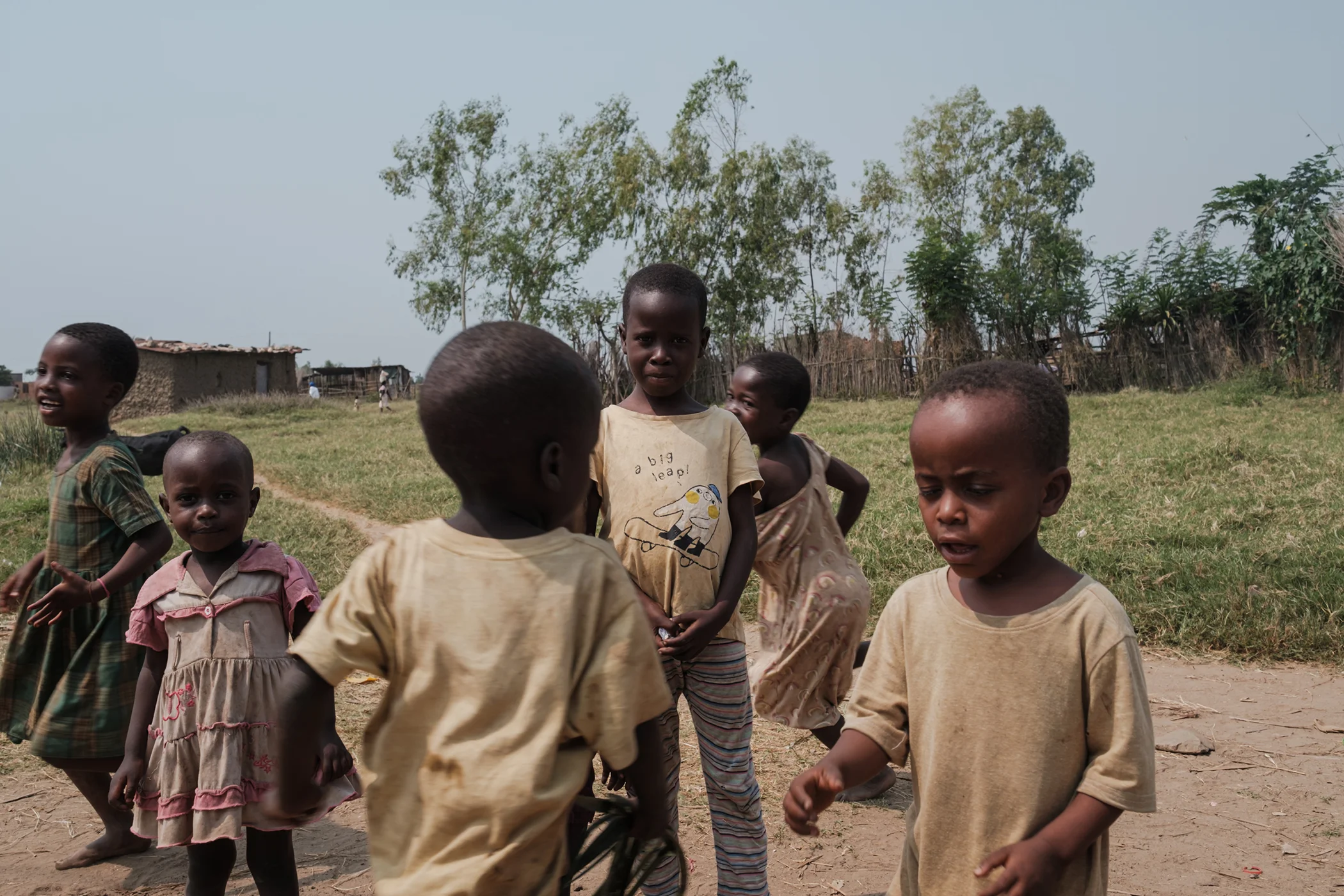 Kaneza Ndayisaba stands surrounded by other children outside her home in Gaharawe village in Burundi in July 2025. Since contracting poliovirus due to missing routine immunizations, Kaneza experienced partial paralysis in her legs and one arm.
Kaneza Ndayisaba stands surrounded by other children outside her home in Gaharawe village in Burundi in July 2025. Since contracting poliovirus due to missing routine immunizations, Kaneza experienced partial paralysis in her legs and one arm.
Since the launch of the Global Polio Eradication Initiative 1988, and its mass vaccination campaign, wild poliovirus cases have decreased by 99.9%.
Now, Belyse makes it her mission to tell other mothers what she has learned.
“I tell other mothers and caregivers to respect the immunization calendar,” she said. “With friends and neighbours, sometimes we talk about immunizations and I give them the example of my children. I encourage them to vaccinate their children.”
If global efforts stay on course, Kaneza’s story could be among the last of such cases, where a world without polio is within reach.
Editor’s Note: This reporting was made possible through the United Nations Foundation 2025 Press Fellowship on Individual Reporting on Polio. It is a part of Global Citizen’s grant-funded content through the Bill & Melinda Gates Foundation.
